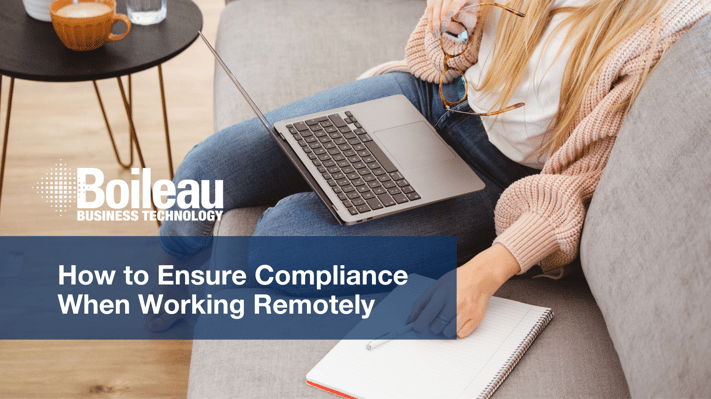
Remote or hybrid work models are utilised by many businesses to keep their operations up and running. For all its benefits, hybrid work does present unique challenges as it exposes organisations to a whole new level of cybersecurity and compliance threats. With cybercriminals preying on vulnerable home networks and work-from-home employees saving files on local drives, businesses using a remote work model face a significant threat to proprietary data. If you are a small business, you should never regard cybersecurity as an afterthought.
Challenges to security and compliance with remote work
Businesses of all sizes face the following challenges when working with remote employees:
Reduced security: Today, your employees take their business devices home and use them on their home networks. They also occasionally use their personal devices for office work. This poses a great threat to business data since organizations have very little control over security.
Inability to enforce best practices: When operating within your office environment, you can ensure data security best practices are followed by employees. However, with remote work, employees might use shared networks or public Wi-Fi connections to perform their work, adding to security complications.
Inadequate backup: Data backup failure is quite common. That’s why organizations need to make sure they have multiple copies of their critical data in case their remote servers are compromised.
Lack of employee awareness: Although most organizations follow best practices with regards to employee and customer data, human error is still a major threat to security and compliance. Remote employees need to be provided with proper awareness training on how to handle data and on the best practices to follow.
Best ways to ensure compliance during remote work
1. Create a cybersecurity policy
If you don’t have a cybersecurity policy in place already, the time to create one is now. It’s vital that organisations create a cybersecurity policy suitable for remote work as well. This policy should cover the various steps employees need to follow at personal as well as professional levels. By establishing proper standards and best practices for cybersecurity, businesses can minimise their exposure to risk.
2. Increase remote monitoring
During remote work, endpoint management and cybersecurity policies are impossible to incorporate without the power of automation. You need a strong remote monitoring solution that manages all your endpoints and helps you adhere to compliance regulations. When you have complete visibility into the entire remote working network, you can minimize vulnerabilities and security threats.
3. Incorporate a consistent data storage policy
Without a standard cloud storage policy, employees won’t know how to store and handle data. There should be a shared repository on the cloud to back up files instantly from different sources. In many cases, copies of data that employees store on their local drives can pose a threat to data security and create inconsistencies in storage policies. You need to make sure that data storage policies are strictly followed throughout the organisation.
4. Incorporate a consistent data storage policy
As cybercriminals and their tactics continue to evolve and become more sophisticated, you need to make sure that you are using effective software tools and solutions to combat this threat. In addition to remote monitoring software, you need to use the right antivirus, cloud backup, password manager and more. You also need to make sure that these solutions are properly integrated into a comprehensive platform.
Explore Boileau's 24/7 Cybersecurity solutions further here or reach out to our sales team to start finding the RIGHT solutions for your business: Contact Us
